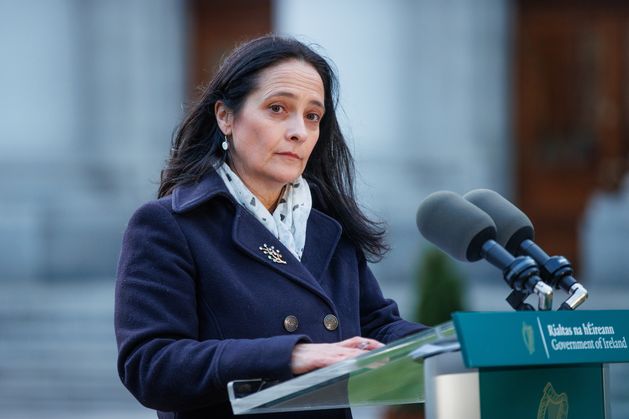Three out of five (60pc) directors see personal or reputational risk as the main deterrent to being on a state board, a new survey by the Institute of Directors (IoD) Ireland has found.
However, nearly 72pc of directors and business leaders would still consider applying for a state board position.
The new survey was undertaken between February 20 and 29, just as the RTÉ corporate governance crisis reignited.
Today’s News in 90 Seconds – March 4th 2024
It comes amid continuing turmoil at RTÉ, including the resignation of board member PJ Mathews last week, shortly after board chairwoman Siún Ní Raghallaigh quit following comments from Media Minister Catherine Martin.
The surprise resignation of Ms Ní Raghallaigh – following months of bruising interaction with executives, fellow board members, politicians and media – has shone a spotlight on the potential workload and profile that can be associated with chairing a state board.
State board roles are not high-paying. The fee for the chair of the RTÉ board was €31,500.
The fee for ordinary board members at the broadcaster is €15,750 a year. Under the so-called “One Person One Salary” policy, public-sector workers do not get any extra pay for sitting on state boards.
Ms Martin is facing a particular challenge filling that role and other RTÉ board vacancies while the scandal there rumbles on, but the new data suggests directors still see value in state appointments.
Most surveyed think a code of practice for governance of state bodies is effective and feel governance standards have improved since its launch in 2016.
Institute of Directors Ireland CEO Caroline Spillane said the results shone a light on the reputational concerns directors now had.
“There were also concerns raised on the recruitment process, in respect of the relevant experience and skills. Directors also expressed the desire for the code to be revised to reflect the latest in governance developments,” she said.
The directors surveyed are all members of IoD Ireland – drawn from a range of businesses including state or semi-state bodies, not-for-profit organisations, private sector SMEs and plc/multinationals.
Meanwhile, Higher Education Minister Simon Harris has described as “sensible” a proposal to put the national broadcaster back under the control of the Comptroller and Auditor General. Mr Harris also indicated a new chair of RTÉ could be appointed this week.
“That appointment is extremely important, and I hope that appointment can happen this week, and Government is trying to do that,” he told RTÉ’s The Week In Politics programme yesterday.
“Secondly, I think the publication of the PAC’s report is really important. A lot of the recommendations sound very common sense to me, and I think putting RTÉ back under the control of the Comptroller and Auditor General is a sensible thing to do.”
He said he continued to have confidence in Ms Martin, who “has the full support of everybody in Government”.
On the future funding of the national broadcaster, Mr Harris insisted the Cabinet was “going to settle this question”.
Asked about a time frame, Mr Harris said RTÉ management “haven’t exactly made it easy”.

